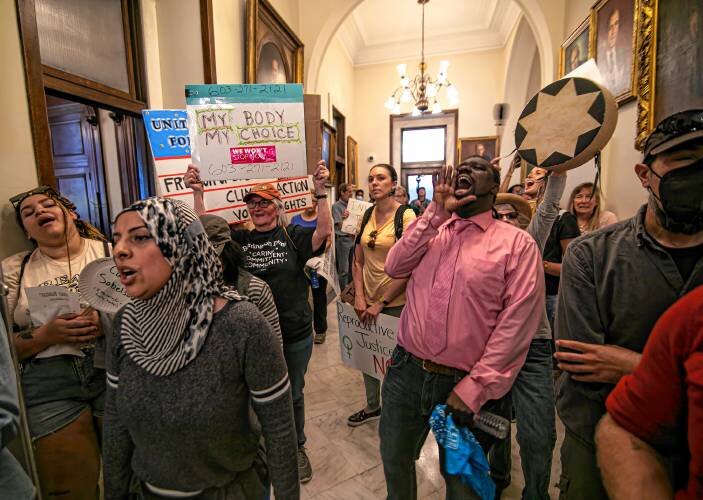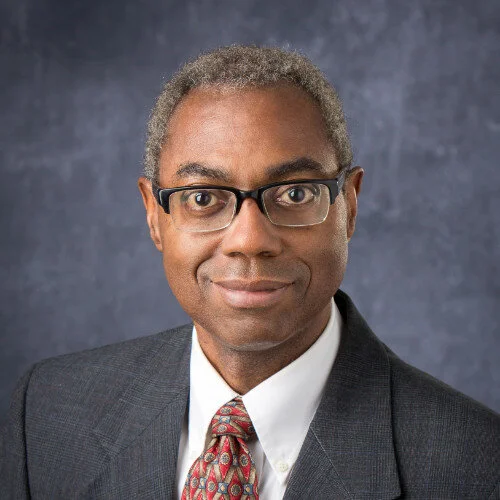Critics say that the Divisive Concepts, or Freedom From Discrimination law, puts a chill on important conversations about race and history in schools. It specifically prohibits schools or governmental agencies from teaching that an individual is racist, sexist, or otherwise oppressive by virtue of their age, sex, or other identity, either consciously or unconsciously. The state legislature is currently considering a handful of bills that would enact changes to the law from repealing it to expanding its reach to universities and colleges. Joining the State We’re In host Melanie Plenda to discuss the issue is JerriAnne Boggis, executive director of the Black Heritage Trail of New Hampshire; state Senator David Watters; Granite State News Collaborative reporter, Jenny Whidden; and Jonathan Friedman, director of Free Expression and Education for PEN America. Later, 8th grade American History teacher at Portsmouth Middle School Erin Bakkom weighs in with her perspective.
Teachers fear ‘Freedom from Discrimination’ law worsens statewide decline in social studies education
It’s been six months since the state passed the “Freedom from Discrimination” law, and some educators say the new legislation has had a discouraging impact on the one classroom subject that needs the most support in New Hampshire right now: social studies.
.The subject was at the forefront of a public dialogue session hosted by the Black Heritage Trail of New Hampshire Feb. 6. The in-person and virtual event — ‘Divisive Concepts’: A Chilling Effect on Teaching History — brought in more than 350 audience members and featured three panelists, who said the law and other related legislation has made a bad situation worse.
What's in the budget provision that is calling race conversations into question?
As the state budget moved through the legislature this year, New Hampshire had its eyes on a provision commonly referred to as the ‘divisive concepts’ legislation. The language has been a point of widespread controversy, but now that it’s law, many Granite Staters are left wondering what exactly is in the bill.
Opponents of the law argue it could put a chill on conversations about systemic racism, white privilege and implicit bias; supporters say the legislation protects all New Hampshireites from discrimination — including white people.
Five arrested after refusing to leave governor’s office
After Asma Elhuni, Lebanon resident and Movement Politics Director for Rights and Democracy New Hampshire, was arrested Thursday alongside four other activists at the State House, she said their fight against the “immoral” legislation in the state budget that Gov. Chris Sununu signed Friday is not over.
Despite the budget being signed and sealed, Elhuni vows to revitalize community outreach efforts in the wake of the legislation. The activist said New Hampshire communities “will not be divided,” and Rights and Democracy will focus this summer on engaging more people than ever around the state.
LEACT told input not needed on bill
Members of the governor’s police accountability commission expressed disappointment after Attorney General John Formella shot down a request for an emergency meeting to discuss “divisive concepts” language in the proposed state budget.
The legislation would prohibit discussing or teaching concepts like systemic racism or critical race theory in schools and governmental agencies.
What is Critical Race Theory, the basis of curriculum targeted by “divisive concepts” legislation?
For the past five or six years, Nashua Police Lt. Carlos Camacho has been teaching new officers about implicit bias, whether it’s an unconscious bias toward people of other races, genders, socioeconomic class or sexual orientation. As part of the training, he shows the officers how they tend to gravitate toward others they find commonality with, reveals the ways they perceive people who are different and encourages them to learn about those differences and find common ground with them.





